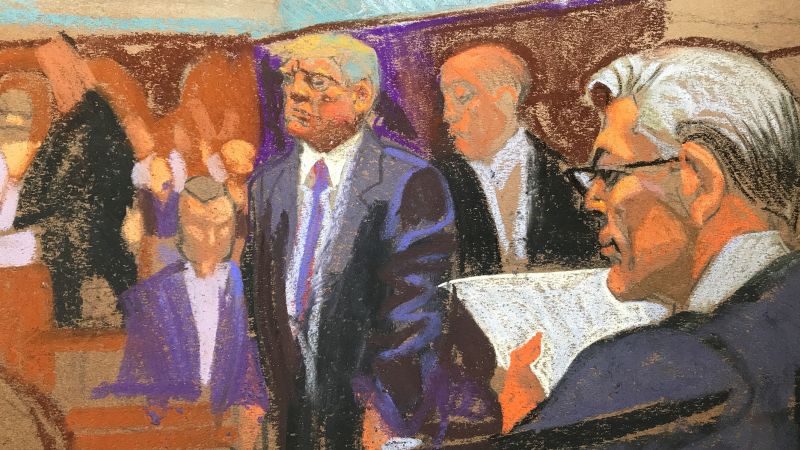On online forums that have previously been linked to mass shootings, people are threatening violence and attempting to publicly identify the 12 New York jurors who on Thursday decided to convict former President Donald Trump.
The calls for retribution began immediately after the verdict was announced.
“Hope these jurors face some street justice,” one anonymous user on a pro-Trump forum wrote. Another suggestively asked, “Wouldn’t [it] be interesting if just one person from Trump’s legal team anonymously leaked the names of the jurors?”
Anonymity is supposed to add a layer of protection for jurors doing their civic duty. Once reserved only for cases involving violent criminal enterprises, the practice is becoming more common. The judge in the Trump New York trial issued an order in March agreeing with prosecutors that most information about the jurors would be sealed. Trump’s lawyers did not disagree, according to the order.
Overnight, however, anonymous internet users on sites that are known havens of hate and harassment began sharing names, home addresses and other personal information belonging to people they say might have been members of the jury, a practice known as doxxing.
This form of amateur online sleuthing can lead to real-life security issues. For example, a commonly used tactic called “swatting” involves a caller making a bogus crime report intended to trigger a massive law enforcement response to a target’s residence.
In the past, people whose personal information have been shared online in this way have been misidentified and sometimes have nothing at all to do with the issue at hand.
“Unfortunately, social media has given rise to a whole generation of amateur sleuthing that lacks journalism standards and ethics, leading to countless examples of mistaken identities and wrongful accusations,” Ben Decker, the CEO of Memetica, a threat analysis company, told CNN Friday. “While the sleuthers themselves face few, if any, consequences, the victims of these accusations become the targets of violent threats both on and offline,” he added.
Violent rhetoric targeting other people involved in the case, including the presiding judge, the district attorney and journalists who reported on the case, was identified by researchers at Advance Democracy, a nonprofit organization that conducts public-interest research, the group’s president, Daniel Jones, told CNN Friday.
Last summer, purported names, photographs and home addresses of grand jurors in Fulton County, Georgia, circulated on the far-right internet after the grand jury voted to indict Trump.
Similarly, after the FBI search of Mar-a-Lago in 2022, a Florida court removed information, including the office address, of a federal magistrate judge from its website, after internet users began targeting the judge, claiming the judge had signed off on the search warrant.
Read the full article here




